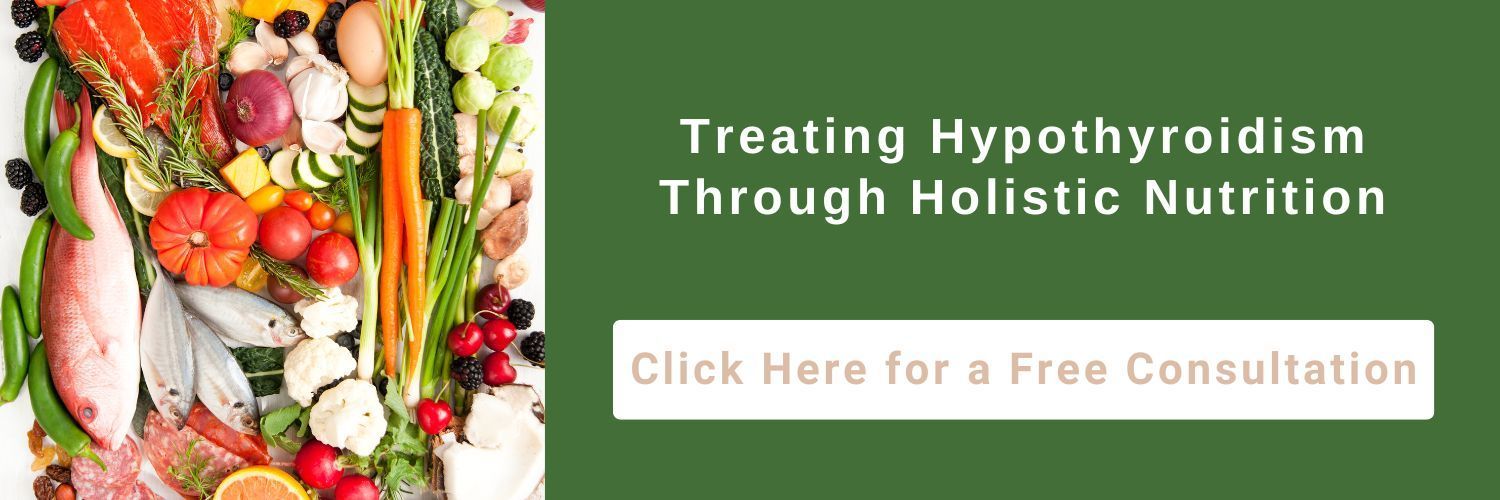Living With Hypothyroidism: Common Life Expectancy FAQs
"The content below is not intended to be a substitute for professional medical advice, diagnosis, or treatment. Always seek the advice of your physician or other qualified health provider with any questions you may have regarding a medical condition."
Whether you have recently been diagnosed with hypothyroidism or have been managing the condition for a long while, you probably experience, at times, the creeping uncertainty of how it will affect your lifespan.
Thanks to increased awareness of and research into hypothyroidism, we have access to reassuring answers about the life expectancy of patients who have been diagnosed with it.
Life expectancy is a complex, multifaceted topic, so hypothyroidism’s influence must be considered from various angles. HealthierU delves into this topic here, sharing information about hypothyroidism and life expectancy, the consequences of not treating the condition, and how to treat it long-term with the best results.
Table of Contents
How Long Can You Live With Hypothyroidism?
Hypothyroidism is not a death sentence. If treated properly and managed well, it does not affect lifespan negatively.
Can Hypothyroidism Shorten Your Lifespan?
Hypothyroidism has a widespread influence throughout the body since it affects metabolism at the cellular level. Thus, it has the potential to disrupt the function of almost any organ.
Untreated hypothyroidism may cause severe or fatal results, such as
myxedema or
heart failure. Treatment, however, changes this picture dramatically. Life-threatening and uncomfortable symptoms are generally resolved after treatment for a period of weeks or months. As a result, most people managing their condition with a customized treatment regimen need not fear a decline in
life expectancy with hypothyroidism.
How Long Can You Live With Untreated Hypothyroidism?
Hypothyroidism generally does not shorten lifespan because treatment is so effective in reducing or eliminating symptoms. If it is left untreated, however, complications may be life-threatening.
Complications Associated With Untreated Hypothyroidism
Various complications of untreated hypothyroidism may shorten life expectancy. These include:
- Heart problems: Hypothyroidism may slow the heart rate and decrease the elasticity of arteries. These lead to decreased cardiac output, and the body seeks to compensate by increasing blood pressure.
- Respiratory problems: Hypothyroidism may weaken respiratory muscles and diminish the lungs’ capacity to detect and appropriately respond to insufficient oxygen or excess carbon dioxide. In addition, as in cases involving a goiter, it may cause obstructive sleep apnea.
- Pregnancy issues: Women with hypothyroidism may have a harder time conceiving. If they do conceive, they are at a higher risk for complications during pregnancy, including:
- Preterm birth with low birth weight
- Respiratory distress in the newborn
- Preeclampsia
- Placental abruption
- Postpartum hemorrhage
- Myxedema coma: This potentially lethal condition is characterized by multiple organ abnormalities and progressive deterioration of the patient’s mental status. It may occur when some event (such as an infection) interferes with the body’s attempts to compensate for severely low thyroid hormone.
Dr. Donna Sergi at
HealthierU assists many patients with managing their hypothyroidism, helping to ensure that none of these complications arise.
Can You Live a Healthy Life With Hypothyroidism?
There is good reason to believe that you can live healthily with hypothyroidism if you are willing to seek treatment and follow counsel about lifestyle changes that better suit your condition. These include changes in terms of nutrition, exercise, and stress management.
Although medical care is essential for thyroid patients, hormone replacement therapy doesn’t always ease the symptoms of hypothyroidism.
But nutrition might.
This is why your acquaintance with HealthierU could be a real game-changer.
Potential Treatments for Hypothyroidism To Help You Live Your Fullest Life
Although hypothyroidism is not curable, it is manageable. Some of the treatments below may be used to supplement medical treatment plans and reduce symptoms associated with hypothyroidism.
Hormone Replacement Therapy
A synthetic drug called levothyroxine is effective in correcting the deficiency of thyroid hormone, which is the hallmark of hypothyroidism. Generally, there are little to no side effects, though excessive dosage and long-term use may cause problems.
Periodic blood tests are performed to ensure that thyroid hormone levels have been restored. Finding the right dose will depend on your body’s response to the medication.
What Are the Long-Term Effects of Levothyroxine?
There is some controversy surrounding the hormone replacement drug levothyroxine. While its benefits are obvious, its adverse effects are, perhaps, not so well known.
HealthierU does not discourage the use of levothyroxine but believes patients should understand the possible effects of the drug. These include:
- Increased risk of various types of cancer
- Symptoms of thyroxine overdose (thyrotoxicosis):
- Rapid heartbeat
- Insomnia
- Agitation
- Anxiety
- Tremors
- Atrial fibrillation
These occur rarely, but you should be aware that negative outcomes are a possibility.
Supplements
Several vitamins and minerals can support thyroid function and address symptoms associated with hypothyroidism. They can be found in foods or in supplement form. While it is ideal to take in these nutrients from food, supplementation may be necessary.
Avoid beginning a supplementation regimen until you have consulted with a medical professional who can ascertain your current levels of these vitamins and minerals:
- Iodine is critical for the production of thyroid hormone. Iodine deficiency is rare in the United States, but some conditions put patients at higher risk. These include:
- Pregnancy: More iodine is needed to support the developing baby.
- Veganism, lactose intolerance, or food allergies: Conditions that prevent your consumption of iodine-rich foods can lead to a deficiency.
- Borderline iodine status + goitrogen consumption: Goitrogens interfere with thyroid hormone production by inhibiting the thyroid’s uptake of iodine and therefore disrupt the production of thyroid hormone.
- Selenium plays an important role in the production of thyroid hormones by supporting enzymes involved in the process.
Selenium may also reduce thyroid antibodies operative in Hashimoto’s thyroiditis, a leading cause of hypothyroidism. Supplementing or increasing your dietary intake of selenium may improve your thyroid function and quality of life.
- Since zinc is required for thyroid hormone synthesis, zinc supplementation may help improve thyroid hormone levels. At the same time, thyroid hormones help the body absorb zinc. In other words, zinc deficiency can be both a cause and effect of hypothyroidism.
- Vitamin D supplementation has proven to increase TSH levels, indicating that it may improve thyroid function. In addition, its anti-inflammatory properties promote digestive and immune health, which may decrease some symptoms of hypothyroidism.
- Almost half of patients with hypothyroidism caused by Hashimoto’s experience a vitamin B12 deficiency. This may be because low thyroid hormone has a negative impact on the absorption of vitamins from the digestive tract. B12’s anti-inflammatory properties help minimize inflammation in the thyroid.
Getting the right
nutrients to support thyroid health can help to maximize your quality and length of life.
Exercise
As described above, hypothyroidism can lead to a decreased heart rate as well as other changes in heart function. Since physical exercise strengthens the heart, it works to counteract these effects, helping to improve heart function and decrease the risk of heart disease.
Exercise does not need to be extremely intense to help you manage stress and weight as well as improve your emotional health and energy levels. This is due in large part to its anti-inflammatory effects.
It may be challenging for people with hypothyroidism to overcome fatigue and pain in the joints and muscles in order to exercise. Still, developing a routine of regular exercise can provide such a boost that it becomes easier with time.
Low-impact exercises can minimize stress on joints and muscles, and strength training can be less fatiguing. Yoga, for example, has been found to reduce fatigue, constipation, and weight gain.
Thus, not only can exercise improve your sense of well-being, it can also improve your physical health and help you live longer with hypothyroidism.
Acupuncture
A health intervention now growing in popularity in the West is acupuncture, a therapy used in Traditional Chinese Medicine. A growing body of evidence suggests that it may be an effective treatment for the symptoms resulting from hypothyroidism.
A 2021 study of the effects of a three-month acupuncture regimen on hypothyroid patients identified improvements in the following areas:
- Decreased BMI
- Resumption of normal TSH levels
- Successful decrease in medication doses
- Less fatigue, cold sensitivity, and hair loss
Other, more general, effects of acupuncture may be especially welcome to patients with hypothyroidism. These include:
- Improved energy levels
- Balanced emotions
- Menstrual regularity
- Improved sleep
Nutrition
As we have seen, nutrient deficiencies can cause or exacerbate hypothyroidism, reinforce or diminish hypothyroid symptoms, and support or undermine overall health.
In particular, an anti-inflammatory diet effectively combats the chronic inflammation associated with Hashimoto’s disease that contributes to a host of symptoms, including:
- Fatigue
- Brain fog and mood problems
- Joint and muscle pain
- Skin and digestive issues
Anti-inflammatory foods contain polyphenols, antioxidants, and other compounds. Inflammatory foods, on the other hand, are highly processed, high in sugar, and/or high in trans fats. Avoiding gluten can also contribute to gut health and healthier digestion since gluten can be inflammatory for some individuals.
A nutrient-rich diet, besides containing nutrients that support thyroid health, is linked with a lower risk of many major noncommunicable diseases, such as:
- Heart disease
- Type 2 diabetes
- Obesity
- Arthritis
- Depression
Eating influences our health more powerfully than we may think. Dr. Donna Sergi guides her clients to an understanding of nutrition’s potential to help manage health issues like hypothyroidism and related illnesses like Hashimoto’s.
Can Hypothyroidism Lengthen Your Lifespan?
While the precise relationship between hypothyroidism and aging remains rather mysterious, evidence suggests that having hypothyroidism may slightly lengthen your lifespan.
One study found that, among a population of individuals above the age of 50, those with hypothyroidism lived at least 3 years longer than those with a normally functioning thyroid.
How You Can Use the Power of Nutrition To Manage Your Hypothyroidism With HealthierU
Lay aside any worry about your quality and length of life with hypothyroidism when you turn to HealthierU for assistance with managing your condition satisfactorily.
Dr. Donna Sergi offers the most personalized hypothyroidism treatment in Brooklyn, as well as holistic chiropractic care and guidance for many other conditions, including menopause, acne, and acid reflux.
She is determined to help you resolve your health concerns safely and naturally. When you visit us for your free consultation, HealthierU will begin to assist you in developing a sustainable nutrition and lifestyle regimen that works for you.
If you want to reduce hypothyroid symptoms and work toward having an optimally functioning body even with hypothyroidism, call us today.






